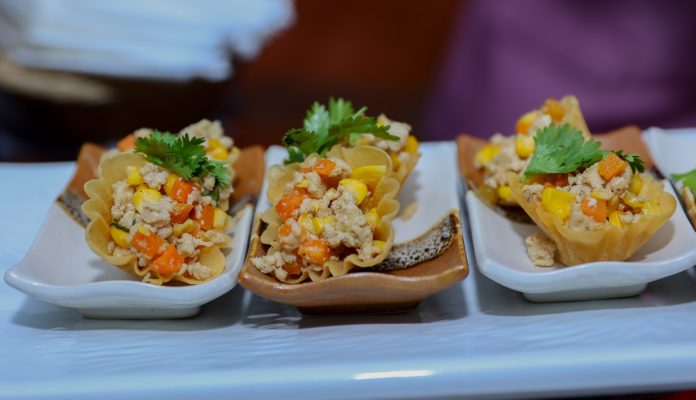
KWALE, Kenya, Sep 21 — The coastal county of Kwale in partnership with the Kenya Marine Fisheries Socio-Economic Development (KEMFSED) project is harnessing aquaculture for growth and sustainability to enhance food and nutrition security.
The KEMFSED project is implemented by the State Department for Blue Economy and Fisheries with support from the World Bank with the project duration being 2020-2025 with funding worth Sh10 billion.
The KEMFSED project is being implemented in the coastal counties of Mombasa, Kwale, Kilifi and Lamu to improve livelihood activities in coastal communities.
The donor funded programme aims at expanding access to livelihood support, food security services, and grants for poor and vulnerable households and businesses, contributing to the overall socio-economic development of the coastal counties.
The county in collaboration with KEMFSED project has been empowering fisherfolks by distributing fish fingerlings and other inputs such as fish tanks to support the aquaculture sub sector and improve food and nutrition security and livelihoods.
The partnership programme has distributed items that include multifilament fishing nets, fiberglass fishing boats with outboard engines, cold storage facilities, flares, bond liners, GPS gadgets, life rafts and life jacket floats to small scale fishermen in order to turn fishing into a profitable venture.
The devolved government has set up 60 freshwater ponds and distributed 70,000 Nile tilapia and catfish fingerlings to small-scale fish farmers in Msambweni, Matuga, Lunga Lunga and Kinango sub counties.
These fingerlings are being distributed to establish and expand freshwater tilapia farming in the county, which helps diversify livelihoods and reduce over-reliance on marine resources.
The initiative reflects the county’s broader agenda of empowering local communities, promoting food security, and diversifying sources of income.
Sustainability and diversification
Governor Fatuma Achani says the initiative seeks to boost sustainable aquaculture production and help diversify fish supply beyond the traditional marine fisheries.
“Fish farming is not just an alternative livelihood; it is a strategic pillar of economic transformation for our people. By investing in aquaculture, we are creating sustainable incomes, enhancing food security, and empowering our communities to take charge of their future. This is how we build resilience and prosperity at the grassroots level,” said Achani.
Governor Achani said the distribution of the assorted inputs is meant to realize the objective of boosting fish production as a means of achieving sustainable food and nutrition security.
The county boss said the initiative is set to transform aquaculture in Kwale, create jobs and boost domestic fish production noting that the fisheries industry was key to food security and rural development.
“We are determined to improve the welfare of our fish farming communities,” she said, noting that Kwale is positioning itself as a leader in the marine and blue economy space.
She went on ‘as a devolved unit we will continue to provide the fish farmers with the right equipment and other forms of incentives to thrive’.
Achani urged residents, especially women and youth, to take full advantage of the value chains in the fish sector by engaging themselves productively.
“I firmly believe that with the right support and training, aquaculture will help us create jobs, boost local economies, and increase food security for generations to come,” she said.
Economic transformation
David Mukoma, one of the beneficiaries of the fish farming project, expressed his appreciation and expressed hope that the initiative would bring significant economic transformation by providing income and nutrition to the residents.
“This project gives us hope. We now have the opportunity to earn a stable income and ensure our families have a reliable source of food. It’s a fresh start for many of us,” said Mukomba, a fish farmer.
Another fish farmer Ramadhan Gang’ombe expressed gratitude to the partnership project, noting that the fish farming initiative will help improve livelihoods and create job opportunities for communities to earn a decent income.
Ramadhan, a veteran fish farmer, says the focus on agriculture and fisheries is the surest way towards achieving food self-sufficiency and rural economic transformation.
County Executive for Agriculture and Fisheries Roman Shera says the Kwale and KEMFSED partnership effort is focused on increasing the availability of disease tolerant and nutrient rich fish species.
He says the farmers are supported by extension services to boost aquaculture production and address food security concerns.
Shera says the renewed push for aquaculture framing comes at a time the national government has operationalized the first National Marine Hatchery at the National Mariculture Resource and Training Centre (NAMARET) in Shimoni, area of Kwale.
He says with the launch of the first marine hatchery, Kwale is taking a momentous stride towards developing a thriving aquaculture sector.
The modern marine hatchery has a production capacity of six to eight spawning cycles that translate to 4 to 5 million larvae annually at optimal operations.
“Our support for aquaculture demonstrates our commitment to revitalizing agriculture, enhancing food security and empowering local farmers through strategic partnerships and sustainable practices” he said.